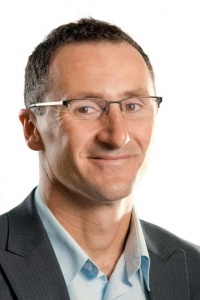IN heading for West Africa on a fact-finding mission Greens Senator Dr Richard Di Natale has exposed the mean-spirited nature of the Federal government. He has also exposed the level of hypocrisy in Australia’s response.
There was an opportunity lost when the Foreign Minister, Julie Bishop, denied consular assistance. She would not divert scarce Australian resources from the High Commission in Ghana. Within weeks she made a statement, as president of the UN Security Council (UNSC), on Ebola “which constitutes a threat to international peace and security”.
The UNSC, the World Health Organization and the secretary general of the UN have all been calling for a much stronger response to the Ebola outbreak in Africa. The UNSC presidential statement warned “complacency is our worst enemy” and encouraged airlines and shipping to maintain transport links with the Ebola-affected countries in West Africa. Only last month Immigration Minister Scott Morrison closed Australia’s border to people from Ebola-affected countries.Dr Richard Di Natale is a public health physician who has worked in developing communities and countries. His understanding of the spread of this sort of disease is well beyond members of the either the House of Representatives or other Senators. A government that was not hell bent on an oppositional approach, a government that genuinely wanted the parliament to work together (other than just when they needed the numbers), a government that really wanted to understand the African Ebola crisis would have immediately asked the senator to lead a delegation to report back to the minister, the government and the parliament. Inviting Liberal MP, Dr Andrew Laming, an ophthalmologist who has also worked in developing communities would also make sense.
Senator Di Natale has made it clear that he is not going to Liberia and Sierra Leone to work as a medical practitioner on treatment. That would be inappropriate. He is there to use his extensive knowledge and understanding with the assistance of the WHO “to get in there, speak to the people co-ordinating the response, find out what they need and come back and start advocating for it”.
It is not that Australia has done nothing. Health Minister Peter Dutton along with Ms Bishop and Prime Minister Tony Abbott have committed $42 million in assistance in West Africa. Around half of the commitment supports Aspen Medical to staff a British-built hospital in Sierra Leone. However, Ms Bishop explained on behalf of the UNSC that the international community needed to do more, “we know how to beat Ebola. We owe it to the victims of this terrible disease – and to all of our citizens – to provide our full and unwavering support to overcome this threat”.
The Red Cross, Médecins Sans Frontières, Save the Children, the Public Health Association of Australia, the Australian Healthcare and Hospitals Association and the Australian Medical Association are some of the voices telling the government for months that they have to get ahead of the disease. First, provide Australian troops and equipment and other logistical support for the people working in treatment on the front line. Second, deploy our Australian Medical Assistance Teams in West Africa. Third, directly assemble, train and support appropriately qualified health professionals and other skilled civilians who are ready and waiting to help.
The message has finally got through with Ms Bishop telling the UNSC “the briefings we have heard today confirm that we have started to pull together in this critical race to catch up and stop Ebola”.
Australia is squandering its opportunities on the world stage. Had John Howard been the Prime Minister with the G20 summit held in Australia there can be little doubt he would have used it astutely to lift his standing in domestic politics. As a result of his poor performance at the G20, Abbott dropped in the polls.
It is not too late for Bishop. The UNSC presidency has provided her with an unparalleled opportunity to demonstrate that Australia is not mean spirited, Australia does have an international perspective and to demonstrate to Australians and the world that we can take action when it is in the interest, not just of Australians, but the people of the world.
Michael Moore was an independent member of the ACT Legislative Assembly (1989 to 2001) and was minister for health. He is CEO of the Public Health Association of Australia and is vice-president of the World Federation of Public Health Associations.
The post Moore / Mean Libs won’t give the doctor a go appeared first on Canberra CityNews.
